June – This Month in Black American History
Posted by Xena
By Guest Blogger Yahtzeebutterfly
Birthdays:
June 3, 1904 – Physician and medical researcher Charles Drew in Washington, D.C.
June 6, 1939 – Child advocate Marian Wright Edelman in Bennettsville, South Carolina
June 7, 1958 – Celebrating PRINCE on what would have been his 58th birthday
June 7, 1917 – Illinois Poet Laureate Gwendolyn Brooks.
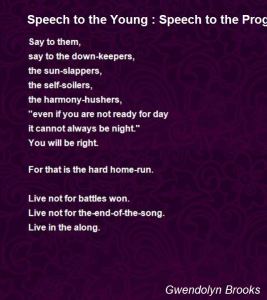
June 22, 1909 – Dancer and choreographer Katherine Dunham in Chicago, Illinois
June 27, 1872 – Poet Paul Laurence Dunbar
June 30, 1917 -Actress, singer and dancer Lena Horne in Brooklyn, New York.
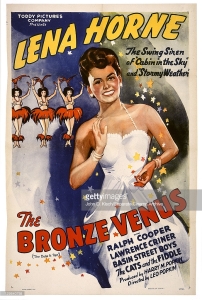
From Wikipedia:
“Horne was long involved with the Civil Rights movement. In 1941, she sang at Cafe Society and worked with Paul Robeson. During World War II, when entertaining the troops for the USO, she refused to perform “for segregated audiences or for groups in which German POWs were seated in front of African American servicemen”, according to her Kennedy Center biography. Because the U.S. Army refused to allow integrated audiences, she wound up putting on a show for a mixed audience of black U.S. soldiers and white German POWs. Seeing the black soldiers had been forced to sit in the back seats, she walked off the stage to the first row where the black troops were seated and performed with the Germans behind her. She was at an NAACP rally with Medgar Evers in Jackson, Mississippi, the weekend before Evers was assassinated. She was at the March on Washington and spoke and performed on behalf of the NAACP, SNCC, and the National Council of Negro Women. She also worked with Eleanor Roosevelt to pass anti-lynching laws.”
Lena Horne singing the protest song “Now”.
EVENTS AND JUDICIAL DECISIONS
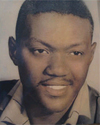
Sheriff Oneal Moore
June 2, 1965 – Sheriff Oneal Moore was ambushed and murdered by klansmen in Bogalusa, Louisiana when he and his partner were on patrol. Hired just a years before in response to demands of the Black community for more hiring of Blacks in government positions, Sheriff Moore and his partner were the first two Black deputies in Washington Parrish.
Civil rights protests in Bogalusa had increased (with white supremacists and Klan members attacking in response ) beginning in April of 1965. Just the week before Sheriff Oneal was shot in the back of his head and his partner wounded causing him to become blind, the Bogalusa police department had agreed to hire two Black policemen to accommodate the Black community demands.
Video from 2013:
June 5, 1950 – Decision in Sweatt v. Painter required the law school at the University of Texas to admit African Americans.
June 5, 1966 – James Meredith began his 220-mile “Walk Against Fear”
June 8, 1953 – Washington, DC restaurants were ordered by the Supreme Court to end segregation.
This decision, often overlooked by historians because it was overshadowed a year later by the far-reaching Brown v. The Board of Education, was decided by the justices in just two months because of its narrow focus on Washington, D.C. and because of two desegregation laws from the 1800s that had been ignored but never repealed.
Here is a link to a video of a very informative presentation given by Joan Quigley who researched this decision for her book Just Another Southern Town: Mary Church Terrell and the Struggle for Racial Justice in the Nation’s Capital.
June 10, 1963 – Civil rights activists in Danville, Virginia gathered on the steps of the city hall as a protest against racial discrimination and to highlight their demand for fair employment, for desegregation of public facilities, and for voting rights. Police and deputized city employees clubbed them and attacked them with firehoses seriously injuring 48 of the protesters.
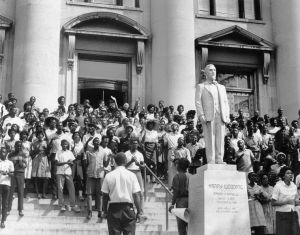
In a Student Nonviolent Coordinating Committee (SNCC) twelve-page pamphlet (published August 1963) mailed out across the country, the movement in Danville was chronicled through photos by Danny Lyons. The publication listed those protestors who were hospitalized and noted that one “Negro man was beaten so savagely by police that he almost lost an eye and was refused medical attention in jail for three days.” (from page 2 of the pamphlet)
June 10, 1964 – Black American youth march against segregation in St. Augustine, Florida
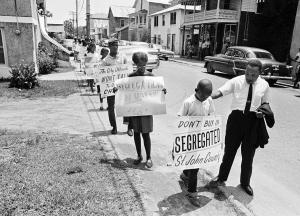
(Atlantic Magazine’s caption: “Dr. Martin Luther King, Jr. gives a young protester a pat on the back as a group of youngsters started to picket St. Augustine, Florida, on June 10, 1964.” )
June 11, 1963 – Vivian Malone and James Hood, attempted to register at the University of Alabama, but were blocked at the door by Gov. George Wallace.
June 12, 1963 – NAACP worker Medgar Evers was murdered in Jackson, Mississippi.
June 12, 1967 – Supreme Court ruled that it is unconstitutional to prohibit interracial marriage as its decision in the case of Loving v. Virginia.
See Xena’s article “Love Conquers All — The Loving Couple”.
June 13, 1967 – Thurgood Marshall was appointed to the United States Supreme Court.
June 14, 1965 – SCOPE project (Summer Community Organization and Political Education) was launch to take advantage of the momentum initiated by Freedom Summer from the year before.
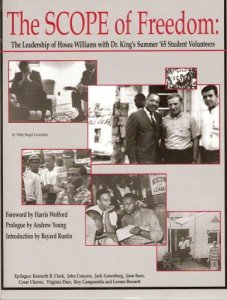
June 17, 2015 – The Emanuel Nine lost their lives to an assassin’s bullets.
June 18 (or 19?), 1953 – Blacks boycott the city buses in Baton Rouge, Louisiana in protest of the overturning of Ordinance 222.
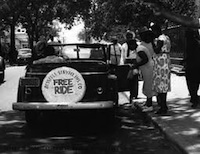
Ordinance 222, adopted in January, had been an accommodation to Blacks who had complained that they had been force to stand in the crowded Black section even when the White seats were empty. The ordinance allowed Blacks to sit in the front seats if just Black passengers were traveling on a particular bus. However, if White passengers were traveling on the bus, they could neither sit in the front seats nor sit next to a White passenger.
Ordinance 222 was overturned when the White bus drivers went on strike to show their displeasure with that ordinance. Reacting to this, Rev. T.J. Jemison founded the United Defense League and on June 18 and called for the Black community to boycott the buses. The week-long boycott was successful and led to a compromise ordinance similar to Ordinance 222 but reserved the two front seats only for Whites even if no Whites were on the bus.
For more info and photos see Knowla.org.
June 21, 1964 – James Chaney, Michael Schwerner and Andrew Goodman disappeared after being released from jail in Mississippi.
Music video with lyrics telling their story:
June 25, 1941 – President Franklin Delano Roosevelt signed the “Fair Employment Act’ which required equal treatment and training by defense contractors of all employees.
June 25, 1964 – Civil Rights wade-in St. Augustine, Fl to protest segregation:
Protest in water at ocean:
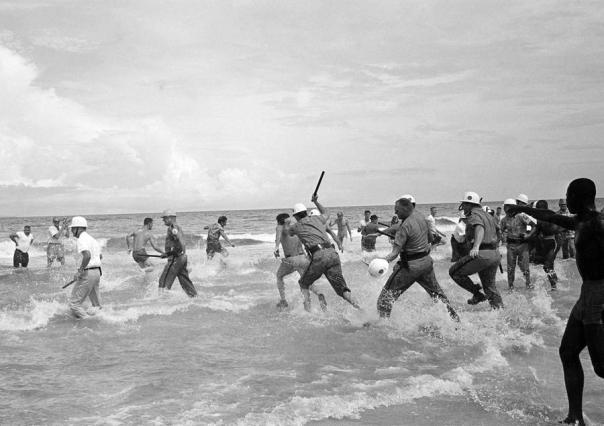
Protest at a swimming pool:
June 25, 2014 – The Supreme Court gutted Section 5 of the 1965 Voting Rights Act
Posted on 06/03/2016, in Black History Month, civil rights, Emmanuel 9 and tagged Andrew Goodman, Black History Month, Charles Drew, Emanuel Nine, Gwendolyn Brooks, James Chaney, James Hood, James Meredith, June, Katherine Dunham, Lena Horne, Loving v. Virginia, Marian Wright Edelman, Medgar Evers, Michael Schwerner, Paul Laurence Dunbar, Prince, Sheriff Oneal Moore, Sweatt v. Painter, Thurgood Marshall, Vivian Malone. Bookmark the permalink. 33 Comments.
























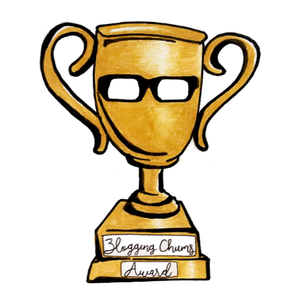













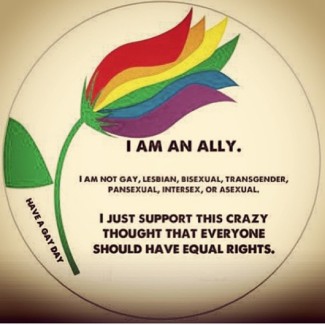
Wow, so much here! I’ll be up early in the morning to read the rest. Thank you for this. So much I didn’t know!
LikeLike
YW, Mindy 🙂 (I am always learning… I just learned for the first time of Lena Horne’s song titled Now. I think you will enjoy listening to the Youtube of it that I posted… it’s fabulous.)
Here is an excerpt:
LikeLike
June 3, 1906 -Birth of singer and dancer Josephine Baker in St. Louis, Missouri.
From Wikipedia:
LikeLike
LikeLiked by 1 person
LikeLike
Reblogged this on Let Our Voices Echo .
LikeLike
Hi Lady2soothe,
Thanks for re-blogging. Hope you are having a great weekend. You contribute so much on the internet!
LikeLiked by 1 person
Thank you yahtzeebutterfly… Your post was a marvelous compilation of video’s! I did add a few of my own, including some on Muhammad Ali.
LikeLike
LikeLike
June 7, 1927 – Birth of gospel musician Jeff Banks in Pittsburgh, Pennsylvania
From Wikipedia:
LikeLike
June 8, 1968 – “Ain’t Nothing Like the Real Thing” sung by Marvin Gaye and Tammi Terrell reached number 1 on the R&B Billboards chart.
Seems like yesterday…
LikeLike
LikeLike
June 11, 1963 – President John F. Kennedy delivers his civil rights speech:
https://youtu.be/KVdZBtlSirI&rel=0
LikeLike
June 12, 1963 Murder of civil rights leader Medgar Evers
Remembering Medgar Evers today:
https://youtu.be/eZhFKV4Q40U&rel=0
LikeLike
From Wikipedia:
LikeLike
John Standard patented an improved design for the refrigerator on June 14, 1891.
LikeLike
LikeLike
LikeLike
LikeLike
https://twitter.com/somedayboy/status/743790494073913344
LikeLike
June 19, 1865 – Juneteenth
LikeLike
June 21, 1964 – Civil rights rally at Chicago’s Soldier Field with Martin Luther King as the keynote speaker
http://cdn.theatlantic.com/assets/media/img/photo/2014/05/1964-civil-rights-battles/c25_06210259/main_900.jpg?1420504177
Excerpt from Chicago Sun Times article by Ronald Berquist (June 22, 1962 newspaper issue) :
(This rally was so momentous that the Chicago Sun Times published photos of the event on five pages: pp. 1, 2, 3, 4, and 10 of its June 21, 1964 issue – Vol. 17, No. 121. )
LikeLike
(Dr. King speaking at June 21, 1964 civil rights rally at Chicago’s Soldier Field)
LikeLike
June 22, 1947 Birth of science fiction writer Octavia Butler in Pasadena, California.
LikeLike
On June 23, 1957 – Rev. Douglas Moore led a non-violent sit-in with other African Americans at the Royal Ice Cream Parlor in Durham, North Carolina.
From Wikipedia:
In 2009 there was a ceremony to place a historical marker at the site:
http://scienceblogs.com/terrasig/2009/11/29/dedication-of-1957-royal-ice-c/
LikeLike
Typo correction– Above should read: On June 23 1957
LikeLike
June 24, 1936 – Mary Mcleod Bethune was appointed by President Franklin D. Roosevelt as Director of the National Youth Administration of the Division of Negro Affairs.
LikeLike
June 26, 1965 – Birth of astronaut Bernard A. Harris, Jr. who was the first African American to walk in space. The following video has great footage of his spacewalk in February 1995:
From Wikipedia:
Uploaded on Sep 17, 2008
“Astronaut Bernard A. Harris, Jr., the first African-American to walk in space, details the experiences of his youth that motivated him to pursue a career in spaceflight.”
LikeLike
“On June 28, 2007, the US Supreme Court in Parents Involved in Community Schools v. Seattle School District No. 1, decided along with Meredith v. Jefferson County Board of Education, ruled that school districts could not assign students to particular public schools solely for the purpose of achieving racial integration; it declined to recognize racial balancing as a compelling state interest.”
C-Span video with reaction to decision by chairman of the Black Causus, NAACP lawyer and a Harvard professor:
http://www.c-span.org/video/?199479-1/supreme-court-integration-decision-reaction
LikeLike
above quotation was from Wikipedia
LikeLike
June 29, 1943 – Birth of singer Little Eva (Eva Narcissus Boyd) in Belhaven, North Carolina
LikeLike
From Wikipedia:
More info from Wikipedia:
So great that students studied and then created this documentary on this decision through role playing in order to recreate the background to the decision:
LikeLike
June 23, 1963 Two months before the March on Washington, Martin Luther King delivered his an early version of “I Have a Dream” in Detroit.
“Uploaded on Jan 17, 2011 by aholowicki
MLK’s first rendition of his iconic “I have a Dream Speech.” Delivered first in Detroit MI, June 23rd 1963. It was released by Gordy records, a subsidiary of Motown and can therefore be considered an early Motown single. This video is intended entirely for educational purposes.”
LikeLike